  |
 Jun 6 2011, 09:12 AM Jun 6 2011, 09:12 AM
Post
#1
|
|
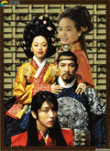 Giọt Lệ Quân Vương    Group: Members Posts: 2,416 Joined: 3-March 09 Member No.: 2,147 Country 
|
Tài liệu lịch sử giá trị ... Bài viết thuộc phương diện lịch sử của ngày chính biến 27 tháng 2 năm 1962 của 2 phi công Phạm Phú Quốc và Nguyễn Văn Cử. Rất tiếc trong văn khố lịch sử thế giới không có phiên bản tiếng việt, tạm thời lưu lại bằng tiếng Anh. Tôi sẽ sưu tầm bản tiếng Việt và bổ túc sau. HNCX. 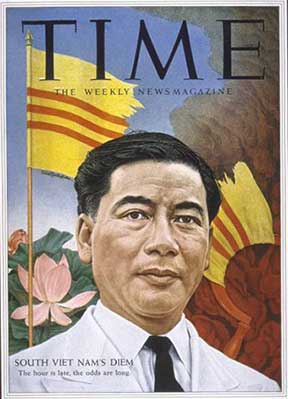 SOUTH VIETNAM DURABLE DIEM FLIGHT OF THE REBELS On the early morning of Feb. 27, 1962, two VNAF Skyraiders took off from Bien Hoa airbase for a close air support in the 4th tactical corps, but instead of flying straight to the target area, both aircraft made a sharp right turn to Saigon vicinity and bombed the Presidential Independence Palace. In an attempt to assassinate President Ngo Dinh Diem, the two young First Lt. Pham Phu Quoc and Second Lt. Nguyen Van Cu destroyed the left wing of the Presidential Palace by dropping their 500 lbs bombs. President Ngo Dinh Diem narrowly escaped the air raid. Lt. Nguyen Van Cu flew to Cambodia for political asylum and Lt. Pham Phu Quoc survived a crash-landing in Saigon River. It is necessary to remind that at that time period, President Ngo Dinh Diem's administration had been criticized for his authoritarianism against political dissidents and for the tacit policy of Buddhism persecution; not counting his tight grip on power by appointing his close relatives at many positions throughout the upper echelon of central and provincial government. In that political atmosphere, the "renegade" P.P.Quoc endured harsh interrogation while in incarceration. On1st November of 1963, the Army of the Republic of Vietnam (ARVN) launched a coup d'etat and succeeded in overthrowing Ngo Dinh Diem's administration and paved way for the start of the 2nd Republic of South Vietnam. Lt. Pham Phu Quoc was then reintegrated into the Vietnamese Air Force (VNAF) and later rose to the rank of Lt. Colonel. On a bombing mission over North Vietnam, Lt. Colonel P.P. Quoc's Skyraider was shot down when he tried to put out a Communist triple-A position near Vinh province. The enemy's anti-aircraft artillery was destroyed, but it was also Pham Phu Quoc's last flight on April 19th of 1965. There is a well-known song "Huyen Su Ca Mot Nguoi Mang Ten Quoc" (Epic song of a man named Quoc), which was written by popular songwriter Pham Duy to dedicate to P.P.Quoc's services and his sacrifice. And in the memories of most Vietnamese Southerners who lived during that political turmoil of that time frame, Pham Phu Quoc has been always mourned and admired for his patriotism. Westerners used to mock a fledging democratic nation or a third-world country as a "Banana Republic," for one of its characteristics is the common coup d'etat, in which the military Top Brass would not hesitate to takes political matter's solution into their own hands. But the Silver Lining of that dark cloud "Banana Republic" is It has a lot of unpredictable, true Patriots who serve no President, no administration, but the country only and those Patriots are the most fearsome foes to any dictator, tyrant, Communist, or Socialist in this modern time. During the Vietnam War, at a time the Republic of South Vietnam seemed to be a "Banana Republic" with many coup d'etats and political instability, but Pham Phu Quoc, Nguyen Van Cu, and the many uncounted junior military Officers of ARVN were her magnificent Silver Lining. The two young pilots took off for a daring mission as the rebels but they flew into history forever as the Patriots. At 7 a.m, in the second-floor study of Saigon's yellow stucco Freedom Palace, South Viet Nam's President Ngo Dinh Diem was absorbed in a biography of George Washington, the gift of a recent U.S. visitor. At the sudden roar of an airplane engine, he looked up, hurried out to the balcony in time to see a fighter plane swooping toward him through the early morning overcast. Scarcely 16 months ago, autocratic, anti-Communist President Diem had narrowly missed being overthrown by mutinous paratroopers, and this time he was taking no chances. With the agility born of experience, short, stocky Diem dashed down the stairs of the palace's east wing to a cellar fortified against such emergencies, flashed word by telephone to his military commanders just as a napalm bomb turned the west wing into a smoky shambles. In a west wing apartment, meanwhile, Diem's brother and sister-in-law, Braintruster Nhu (still clad in pajamas) and Presidential Hostess Mme. Nhu, snatched three of their children (a fourth was away from home) and bolted for the basement. In the scramble, Mme. Nhu fell down the steps, bruising her arms, legs and forehead. Also to the bunker rushed another brother. Archbishop Thuc, in Saigon for medical treatment. Tanks & Pistols. Roused by the sound of aircraft engines, residents of the city climbed to their rooftops to see what was happening. Two AD6 Skyraider fighter-bombers of the South Vietnamese air force were lazily circling the spacious palace grounds, gracefully power- gliding below the 500-ft. ceiling to drop bombs, fire rockets, strafe the building. Then they pulled up sharply into the heavy clouds before zooming down for another pass. "With that weather," said a U.S. Air Force officer, "they did a hell of a job." For about 30 minutes the planes were unmolested as they attacked the palace with four bombs, eight rockets and cannon fire. Meanwhile, loyal ground troops, anticipating a full- scale revolution, hastily ringed the palace grounds with tanks. Minesweepers patrolled the Saigon River. Then two loyal pilots from the Bienhoa air base, twelve miles north of Saigon, gave chase, but on the ground in Saigon no one knew if the new arrivals were friends or foes. Antiaircraft fire from tanks, minesweepers, and even policemen's pistols was indiscriminate. Despite the confusion, most of the people went about their business with conventional apathy. Pretty girls in billowing silk gracefully pedaled their bicycles, and motorists stopped for red lights. Finally, a shot from a minesweeper downed one of the rebel planes, and as the pilot crash-landed in the Saigon River, the other plane fled toward the Cambodian border about 40 miles away. The downed pilot was picked up by naval craft, quickly asked: "Did I kill that filthy character?" His identity proved surprising: Lieut. Pham Phu Quoc, a French-trained flying ace in the South Vietnamese air force who recently was congratulated by President Diem for flying hundreds of sorties against the Communist Viet Cong. In fact, he and the second aerial rebel were due to fly an anti-Red mission that morning, headed for the Saigon palace instead. Lieut. Quoc's fellow attacker was 2nd Lieut. Nguyen Van Cu, a less experienced fighter pilot with more obvious reasons for discontent: his father, an ex-member of an outlawed political party opposed to Diem, as well as the Communists, had been briefly jailed a few years ago for "antigovernment activities." Cu, who was granted political asylum in Cambodia, said his assassination mission was aimed less at President Diem than at his family and supporters, "who are hated by the army and the population." Just in Case. Whatever the intention, the mission failed. Known fatalities in the assault were a servant inside the palace, two other Vietnamese, and U.S. Contractor Sydney Ambrose, 59, of Portland, Ore., who climbed to a shaky, asbestos-covered apartment-house roof to watch the fireworks, fell through and died in a hospital. Also hospitalized with abrasions was Mme. Nhu, who, reported one visitor, "cried like a baby." Diem's regime seemed unruffled by the surprise attack, wrote it off as the "isolated act" it appeared to be. But just to make sure, the National Assembly leaders laid the groundwork for a possible wholesale roundup of dissidents by urging Diem to "take drastic measures against irresponsible elements." The President himself came through the assassination attempt with courage and coolness. Within two hours, he was on the radio with a brief recorded speech to thank "divine protection" for his escape. Then he paid a hospital visit to soldiers wounded in the battle, reassured the mutinous pilots' fellow officers that they would bear no share of the blame. President Kennedy immediately sent a message that denounced the attack as a "destructive and vicious act," expressed relief that Diem was "safe and unharmed." The quick U.S. reaction was intended to show that any hidden sympathizers of the mutinous pilots could expect no backing from Washington. (Source: time.com) 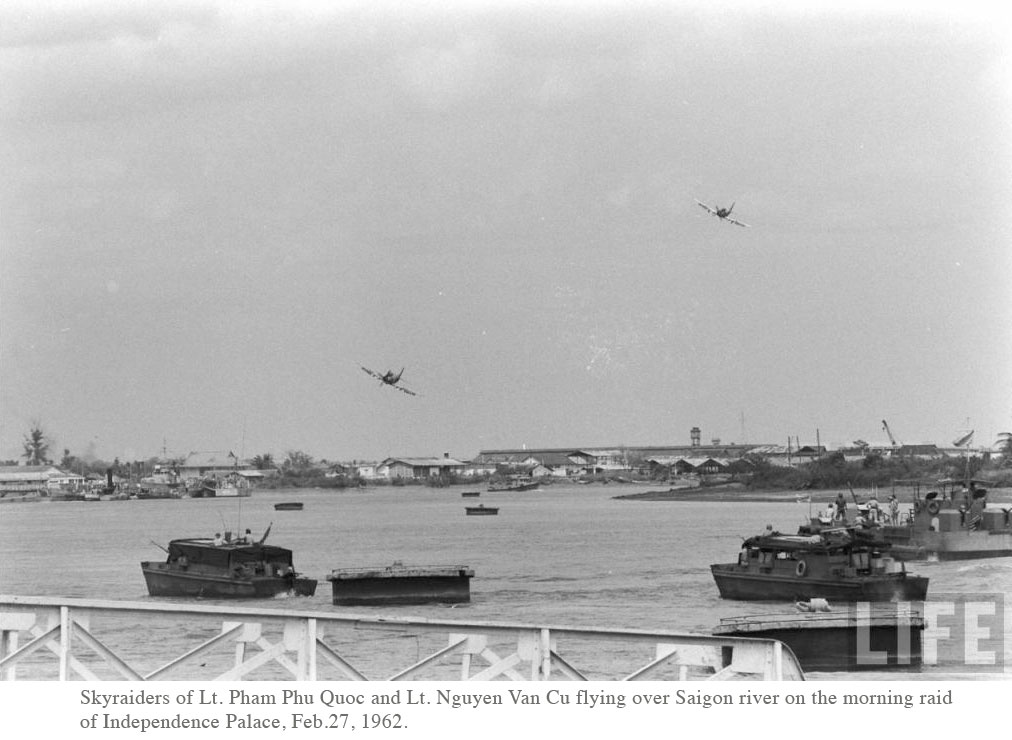 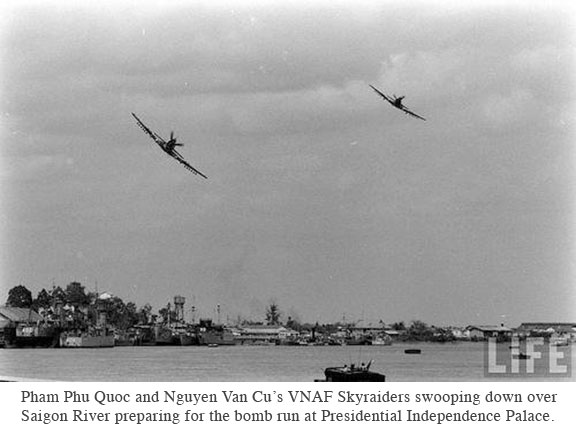 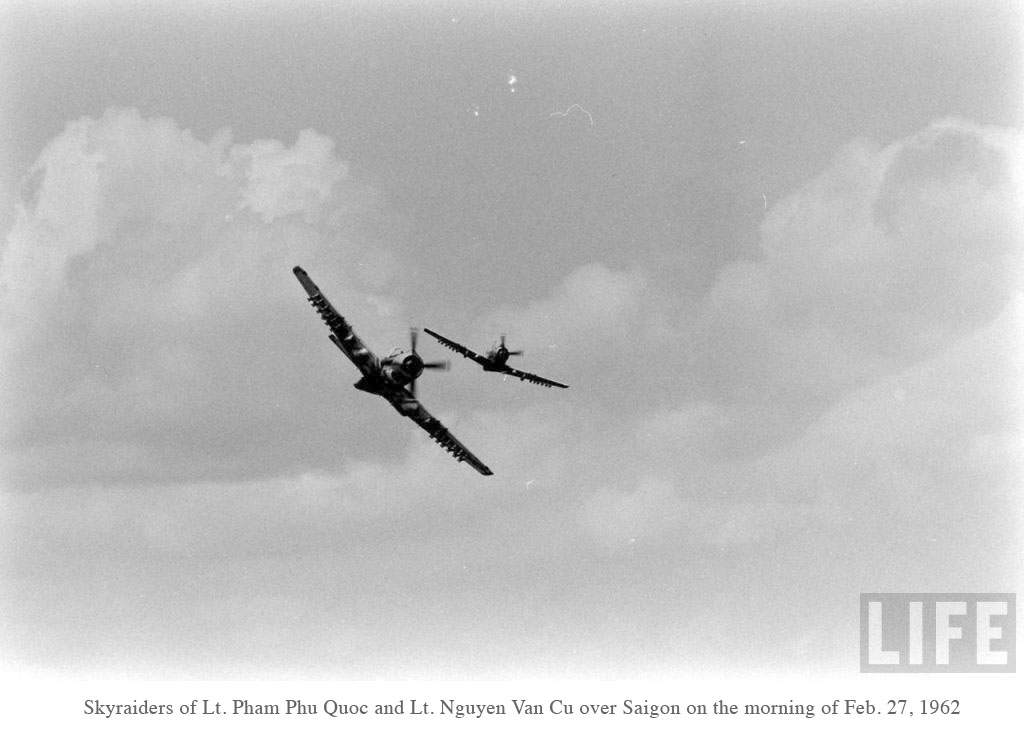 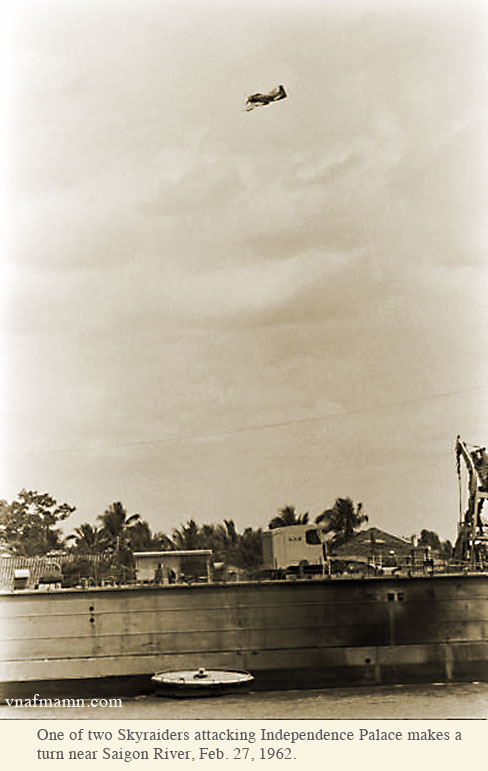 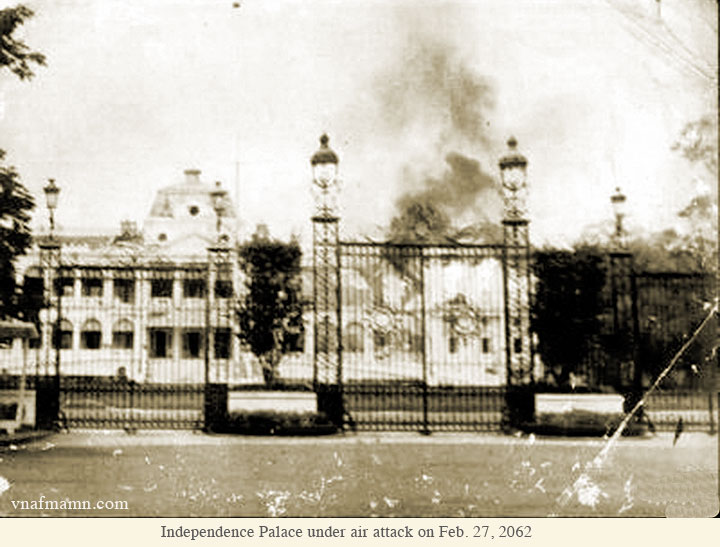 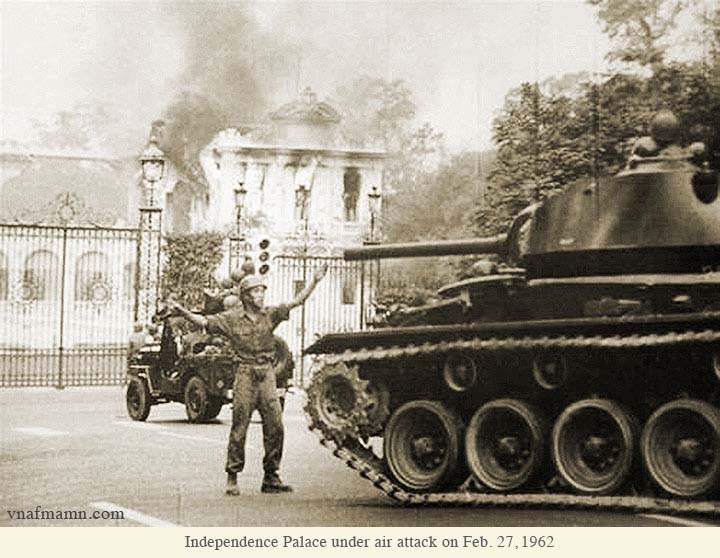 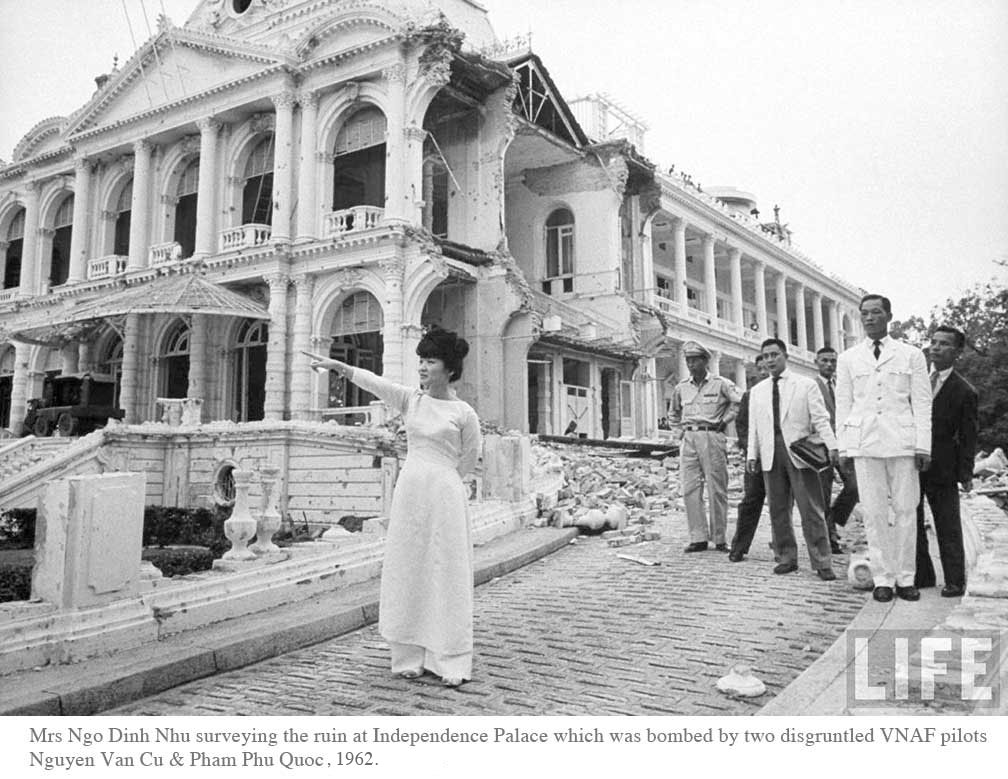 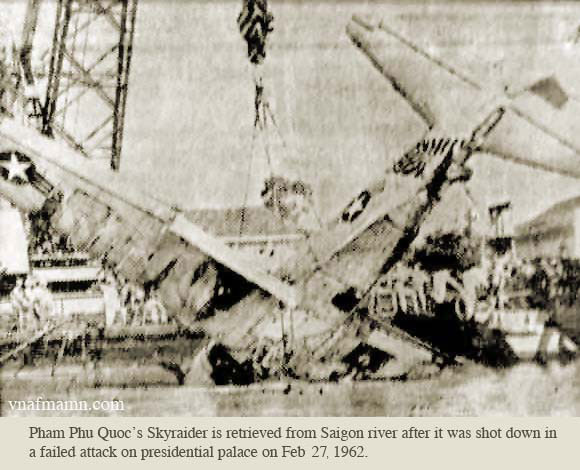 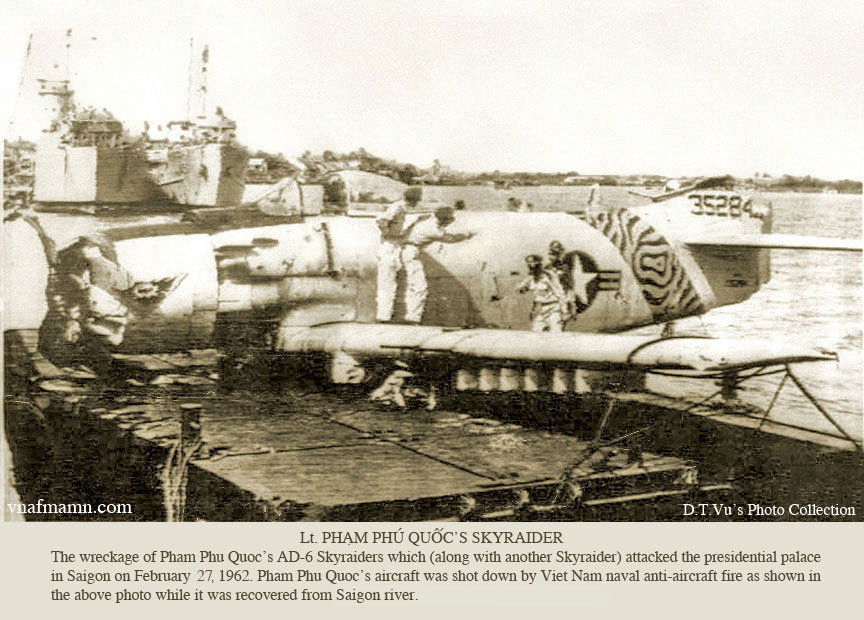 -------------------- Say men rượu ngày mai sẽ tỉnh Say men tình mãi mãi vẫn còn say ! |
|
|
|
 Jun 6 2011, 09:14 AM Jun 6 2011, 09:14 AM
Post
#2
|
|
 Giọt Lệ Quân Vương    Group: Members Posts: 2,416 Joined: 3-March 09 Member No.: 2,147 Country 
|
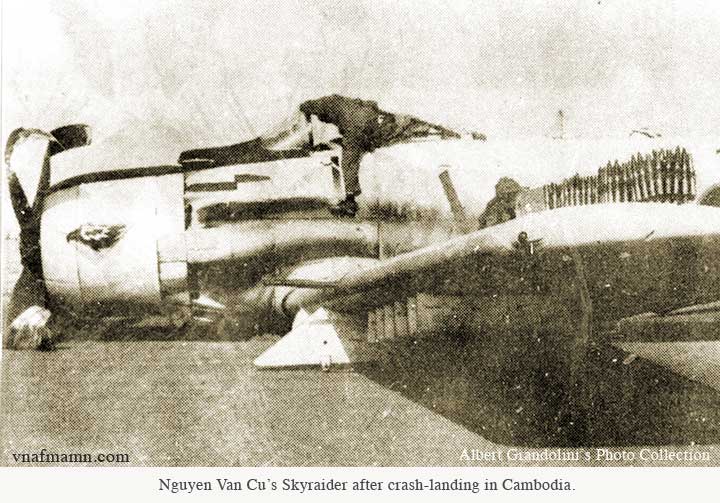 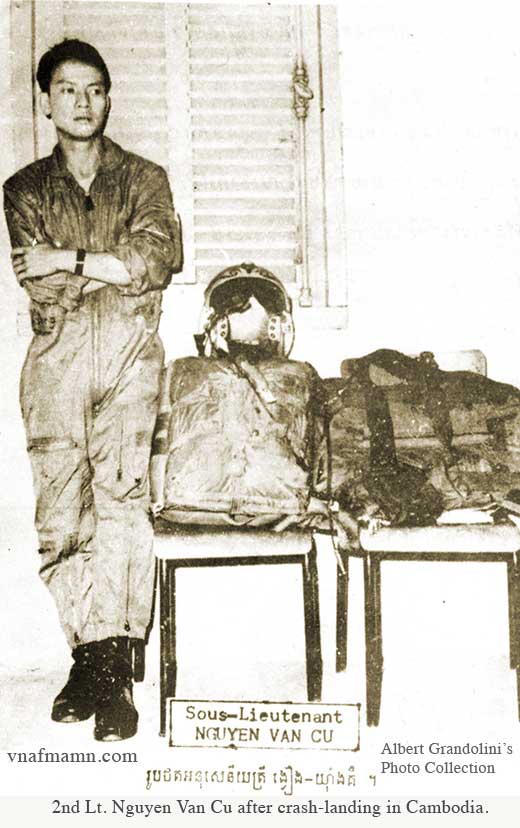 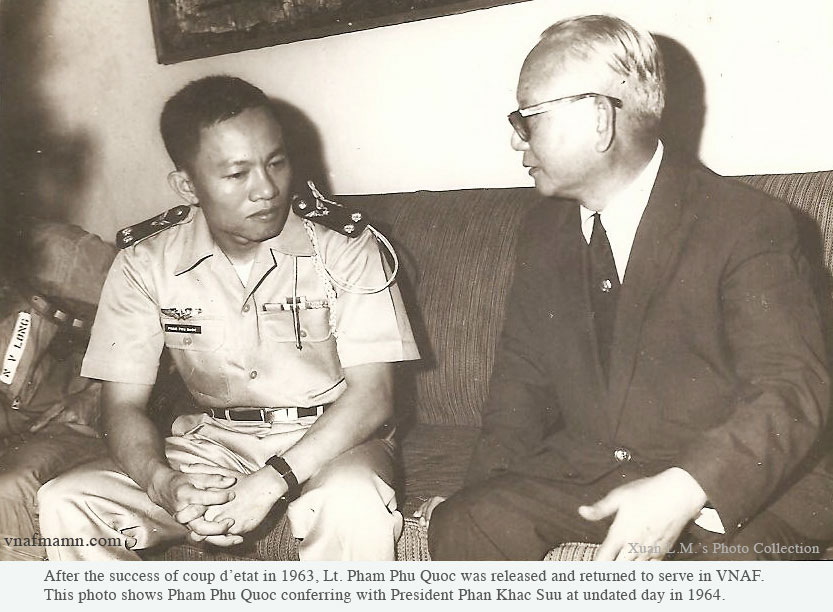 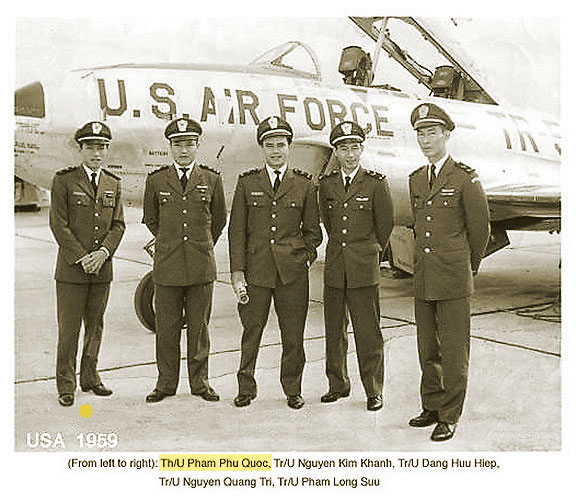 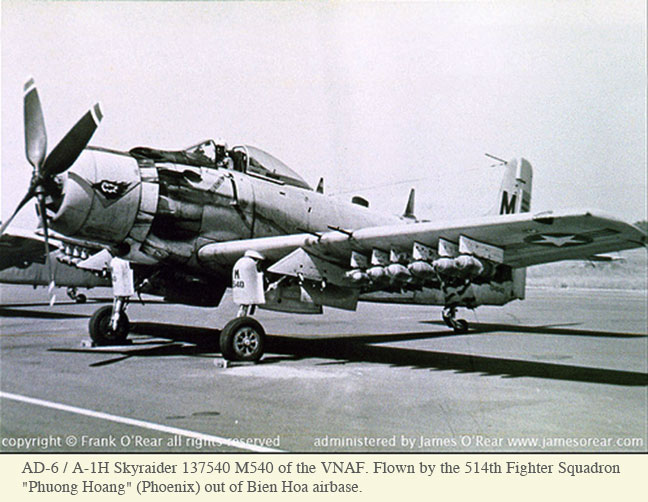 -------------------- Say men rượu ngày mai sẽ tỉnh Say men tình mãi mãi vẫn còn say ! |
|
|
|
  |
1 User(s) are reading this topic (1 Guests and 0 Anonymous Users)
0 Members:
| Lo-Fi Version | Time is now: 17th November 2024 - 01:46 PM |







